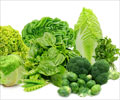- Nutritional values of fruits, veggies is dwindling - (http://www.nbcnews.com/id/37396355/ns/health-diet_and_nutrition/t/nutritional-value-fruits-veggies-dwindling/)
- Dirt Poor: Have Fruits and Vegetables Become Less Nutritious? - (http://www.scientificamerican.com/article/soil-depletion-and-nutrition-loss/)
- Declining Nutrition of Fruits and Vegetables - (http://www.cncahealth.com/explore/learn/nutrition-food/declining-nutrition-of-fruits-and-vegetables#.vfsxwkb-hsg)
About
With the increase in population in the world, there is an increased requirement for all the commodities necessary to sustain life. Food is one of these essential commodities. One way to increase crop output is by improving agricultural techniques. Most modern agricultural techniques have stripped away almost all of the nutrients from the soil in which the food we eat grows.
A study conducted in 2004, comparing the nutrient density of crops in 1950 to those in 1999, showed that there was a decline in iron, phosphorus, riboflavin, calcium, protein and vitamin C over this duration. This occurs because the chemicals and methods used to grow crops faster leads to the inability of the crop to absorb nutrients from the soil or synthesize nutrients on their own.

There is a different outcome when organic farming is followed. The absence of synthetic fertilizers puts pressure on the plants to produce more phytochemicals, which are responsible for increasing the nutritional value of the produce.
Choosing organic produce would be the best solution to overcoming this nutrient deficit but it is often expensive and not budget-friendly. However, there are some simple ways to ensure that you choose and eat foods, which have good nutrient compositions.
- Choose bold colours – The brighter the colour of the fruit or vegetable, the higher the content of healthy phytochemicals.
- Buy smaller produce – Plants do not have an endless supply of nutrients that they can pass on to their produce. Choosing smaller produce will ensure nutrient density.
- Complement your produce – Some foods contain compounds, which influence the absorption of nutrients from another food. For example, avocados increase the absorption of lycopene from tomatoes.
- Choose the right cooking method – Vegetables release nutrients at varying degrees when subject to cooking. For example, tomatoes release more lycopene when sautéed or roasted while carrots are more nutritious when steamed.
- Look for new colours – Buying different-coloured vegetables widens the range of phytochemicals you consume and this increases nutrient levels in the body.
- Do not store produce for too long – Eating fruits and vegetables within a week of purchasing them will prevent nutrient losses.
- Eat them whole – As much as possible, try and consume fruits and vegetables whole. Chopping and grating leads to nutrient loss.

Saying that the vegetables and fruits you eat these days have very little nutrition in them – especially compared to the unhealthier fast food that is available is farfetched. But, the fact is that the healthy food we consume now is not as nutrient-dense as it was about 30 or 40 years ago. Although this is disheartening, it is essential to take steps to ensure that the right food is eaten in the right quantity to ensure good health and nutrition.









